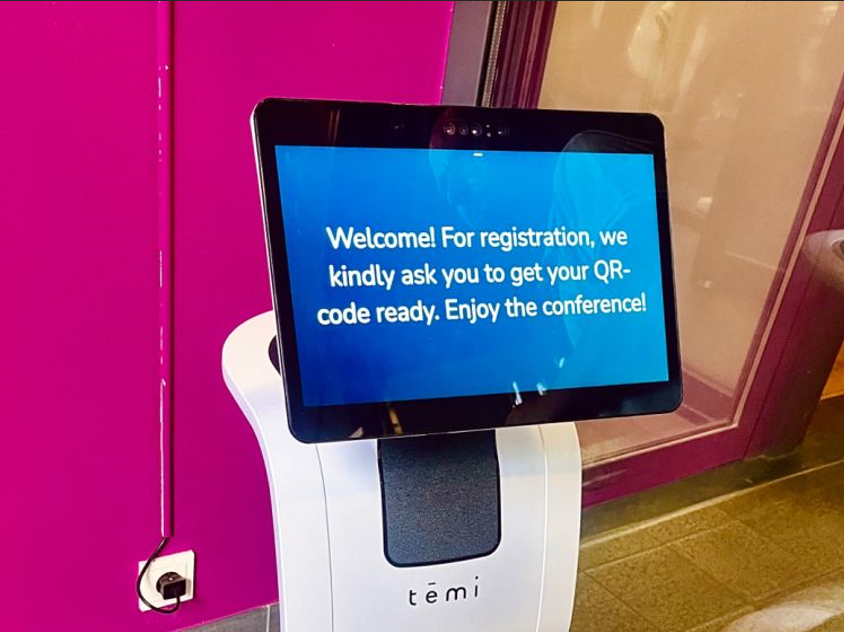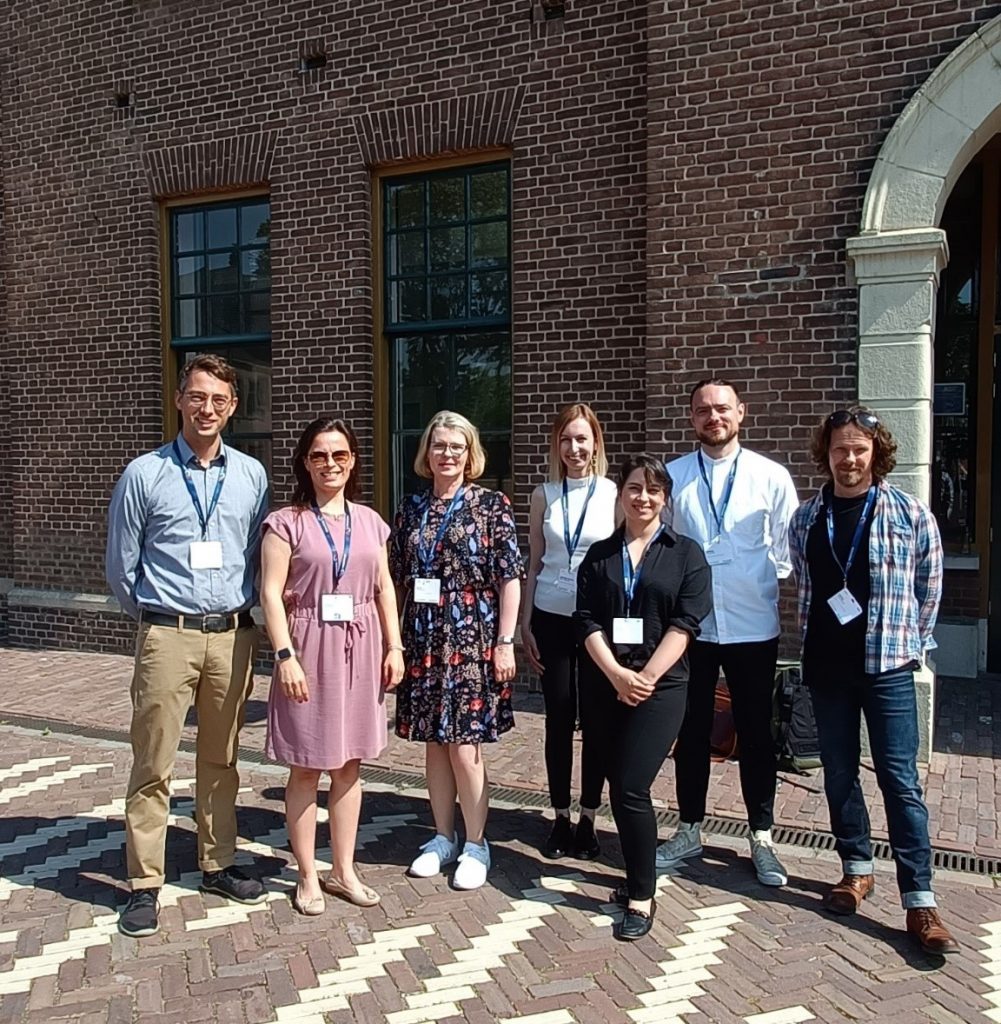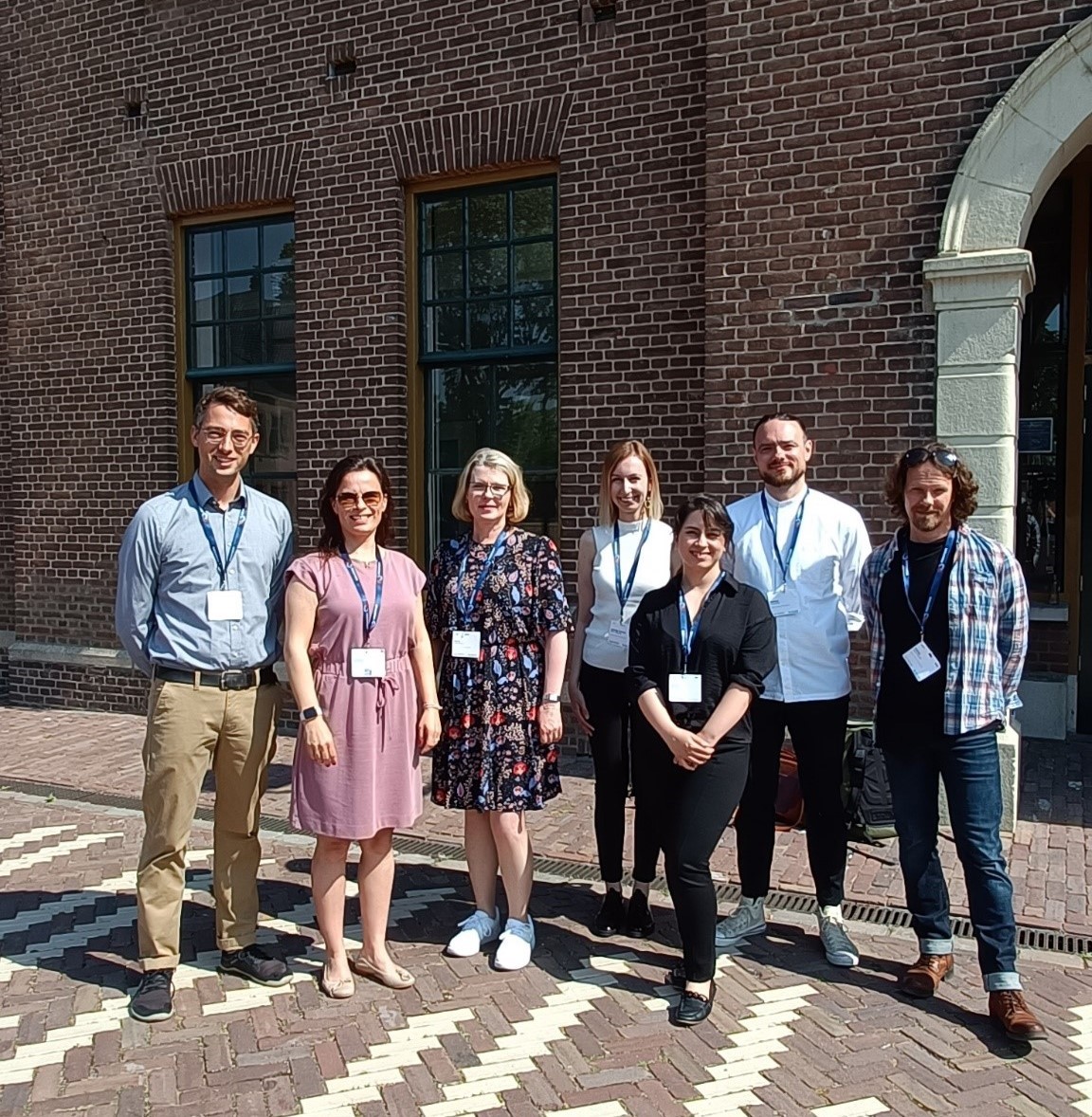
Naturally, looking into the future is not an easy task and frankly, the gestalt emerging in the conference’s crystal ball has not always been consistent. Before reading this post, I would therefore like you to open the drawer to your left and put your subjectivist glasses on. In case you chose otherwise, you may find the picture I present unprecise and possibly inaccurate. But trust me – the reality is much easier to bear when it is constructed.
Themes of Frontiers in Service 2023
The campuses of Maastricht University have mesmerized visitors with their traditionalist architecture and the grandness of the Dutch Golden Age ever since their erection. However, it’s only recently that robots and technology have taken over the focal point of attention. During the conference, the Maastricht Center of Robots impressively demonstrated the remarkable speed of current technological advancements and the endless possibilities they offer. Already today, teaching is done in virtual and augmented realities, and quite naturally, robots serve conference attendees. The future is now, one might say.
If anything has become evident at this year’s Frontiers, it is that any use of technology starts and ends with people. They are, and they will be, the true centre of service research. Human-centered service research has long been an overarching theme—this year’s Frontiers in Service shows that it remains of principal interest and is far from being outdated.

Then again, it was not all about technology and robots. The program of the conference also offered presentations about, for example, customer experience or customer engagement, and to my delight, a not-too-subtle emphasis was put on Transformative Service Research (TSR). In fact, there were just as many presentation slots dedicated to TSR as to service robots. To me, TSR is especially interesting, because it uses a service research lens to find solutions for bettering humanity’s well-being.
Transformative Service Research (TSR)
TSR, a movement within Service Research pivoting on understanding transformative outcomes of service, was brought to life well over a decade ago. In this context, transformation is often equated with a change in well-being for individuals, collectives, or societies. This shift broadens the benefactors of value creation to include more people, not only customers but also the providers of services, and external stakeholders (Anderson & Ostrom, 2015). Despite the focus on well-being, many contributions to the domain appear to dodge any discussion about what well-being truly means. In consequence, many TSR studies describe well-being simply as a mix of eudemonic and hedonic well-being (ibid.). Simultaneously drawing from these two distinct traditions appears to be an elegant way to circumvent debates going too deep into psychology or philosophy. Yet, from what I could witness at the conference, things are starting to change.
New empirical data suggests that people interacting with service may elevate their state and become better without ever reaching a state that could appropriately be described as “well” (Alkire et al., 2020). Service appears to not only be capable of improving well-being but also reducing suffering. TSR outcomes may show long after the service interaction occurs (Boenigk et al., 2021). Therefore, the term “well-becoming” is starting to emerge (c.f., Salomonson & Fisk, n.d.).
Unlocking Well-Becoming: The Power of Linguistic Framing in Shaping Your Mindset
In contrast to investigating changes in well-being, exploring the role of service in well-becoming offers a much more comprehensive outlook. The impact of comprehensive naming extends well beyond just word choice. Research suggests that the way we frame our communication, including any scientific work, unintentionally reflects a tacit agenda and thus determines the outcome of research. For instance, the way we perceive and take ownership of problems is largely shaped by societal narratives (van Laer et al., 2014), and the way we make use of implicit knowledge directly depends on the words we use to define phenomena (Raciti et al., 2022). After attending Frontiers, I conclude that service research is yet to tread much of the path of understanding the implications of the linguistic frames we encounter and use in our work and life.
Changing our use of framings will require a better reflection on how the research aims are represented in our language. A good example of this is the change of TSR’s scholarly language from ‘vulnerable consumers’ to ‘consumers experiencing vulnerability’ and thus no longer pinning the ownership of vulnerabilities on the person experiencing them (Glavas et al., 2020). Likewise, I am doubtful that we genuinely try to understand people holding systemically marginalized identities (Silverman et al., 2023) if research speaks of ‘hard-to-reach’ populations (Duvnjak & Fraser, 2013) when in fact the true interest is to study service that is ‘hard-to-access’ (cf., Fisk et al., 2018). Linguistic framing also offers an interesting context to study beyond TSR. For example, Aghayi’s et al. (n.d.) forthcoming study explores how presenting customers with the idea of paying a ‘robot tax’ has far-reaching effects, demonstrating how framing impacts the way service is perceived. It appears that if we are aiming for better (and more inclusive) business practices, we should be more mindful of the implicitness of language. And I believe that is something we should strive for.
Stefan Burggraf
Ph.D. student in the pursuit of well-becoming at the Centre for Relationship Marketing and Service Management (CERS)
References
Aghayi, K., Aspara, J., Ciuchita, R., & Caic, M. (n.d.). Should Consumers Pay Robot Taxes? Psychological Differences in Consumers’ Responses to Excise-Type Robot Taxes. Manuscript submitted for publication.
Alkire, L., Mooney, C., Gur, F. A., Kabadayi, S., Renko, M., & Vink, J. (2020). Transformative service research, service design, and social entrepreneurship: An interdisciplinary framework advancing wellbeing and social impact. In Journal of Service Management (Vol. 31, Issue 1, pp. 24–50). Emerald Group Holdings Ltd. https://doi.org/10.1108/JOSM-05-2019-0139
Anderson, L., & Ostrom, A. L. (2015). Transformative Service Research: Advancing our knowledge about service and well-being. Journal of Service Research, 18(3), 243–249. https://doi.org/10.1177/1094670515591316
Boenigk, S., Kreimer, A. A., Becker, A., Alkire, L., Fisk, R. P., & Kabadayi, S. (2021). Transformative Service Initiatives: Enabling Access and Overcoming Barriers for People Experiencing Vulnerability. Journal of Service Research, 24(4), 542–562. https://doi.org/10.1177/10946705211013386
Duvnjak, A., & Fraser, H. (2013). Targeting the ‘hard to reach’: re/producing stigma? Critical and Radical Social Work, 1(2), 167–182. https://doi.org/10.1332/204986013X673245
Fisk, R. P., Dean, A. M., Alkire (née Nasr), L., Joubert, A., Previte, J., Robertson, N., & Rosenbaum, M. S. (2018). Design for service inclusion: creating inclusive service systems by 2050. Journal of Service Management, 29(5), 834–858. https://doi.org/10.1108/JOSM-05-2018-0121
Glavas, C., Letheren, K., Russell-Bennett, R., McAndrew, R., & Bedggood, R. E. (2020). Exploring the resources associated with consumer vulnerability: Designing nuanced retail hardship programs. Journal of Retailing and Consumer Services, 57, 102212. https://doi.org/10.1016/j.jretconser.2020.102212
Raciti, M. M., Russell-Bennett, R., & Letheren, K. (2022). A strengths-based approach to eliciting deep insights from social marketing customers experiencing vulnerability. Journal of Marketing Management, 38(11–12), 1137–1177. https://doi.org/10.1080/0267257X.2022.2092196
Salomonson, N., & Fisk, R. P. (n.d.). A Strengths-Based Perspective for Enabling Marketplaces: A Transformative Service Research Approach to Well-Becoming. Manuscript Submitted for Publication.
Silverman, D. M., Rosario, R. J., Hernandez, I. A., & Destin, M. (2023). The Ongoing Development of Strength-Based Approaches to People Who Hold Systemically Marginalized Identities. Personality and Social Psychology Review, 27(3), 255–271. https://doi.org/10.1177/10888683221145243
van Laer, T., de Ruyter, K., Visconti, L. M., & Wetzels, M. (2014). The Extended Transportation-Imagery Model: A Meta-Analysis of the Antecedents and Consequences of Consumers’ Narrative Transportation. Journal of Consumer Research, 40(5), 797–817. https://doi.org/10.1086/673383

